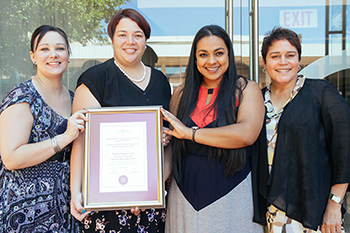Latest News Archive
Please select Category, Year, and then Month to display items
14 June 2024
|
Story Anthony Mthembu
|
Photo Suplied
 Jeremiah Hlahla, a UFS student completing his PhD in Botany at the University of Debrecen as part of an exchange initiative funded by the Erasmus+ Mobility Programme.
Jeremiah Hlahla, a UFS student completing his PhD in Botany at the University of Debrecen as part of an exchange initiative funded by the Erasmus+ Mobility Programme.
As part of an exchange initiative facilitated by the Erasmus+ Mobility Programme, Jeremiah Hlahla, a student at the University of the Free State (UFS), is nearing the completion of his PhD studies at the University of Debrecen in Hungary. Hlahla’s journey, which began in February 2024 and is set to conclude in July 2024, has been a remarkable learning opportunity. “As a first time-traveller to Europe, I have thoroughly enjoyed engaging with people from different countries and cultures,” he said.
The benefits of international collaboration
Hlahla is currently pursuing a PhD in Botany, focusing on plant stress physiology. “My current PhD project investigates the physiological, biochemical and morphological responses of vegetable-type soybean, or edamame, to combined drought and heat stress,’’ he explained. He considers the University of Debrecen the ideal institution to complete his research due to its extensive expertise and resources in similar projects. He noted that his colleagues at Debrecen conduct significant work on plant protection against biotic and abiotic stresses, including salt and drought stress, as well as proteins and amino acids in barley and other legumes.
Given the vast knowledge available on similar projects, Hlahla has found substantial engagement with his work at the University of Debrecen. “Upon arrival, I delivered an introductory lecture presenting my UFS project on the synergistic effects of combined drought and heat stress on the physiology and biochemistry of edamame. It was an engaging session as everyone could relate to my work and asked many questions,’’ he said.
Insights gained from the exchange
Hlahla has also gained valuable lessons that will assist him in his research career, including biotechnology and physiology tools. “I learned how to prepare samples and use high-performance liquid chromatography (HPLC) and reversed-phase ultra-high-performance liquid chromatography (UHPLC) to quantify proteins and amino acids,’’ he said. These techniques are beneficial not only for his current work but will also support future soybean research.
As his experience at the University of Debrecen nears its end, Hlahla reflects on the collaborations and friendships he has formed, which stand out as a significant highlight.
Communication Science lecturers walk away with Best Teachers Award
2015-11-26

The winners: Jolandi Bezuidenhout, Rentia Engelbrecht, Jamie-Lee Nortje with Prof Milagros Rivera (Head of Department of Communication Science). |
Jolandi Bezuidenhout, Rentia Engelbrecht, and Jamie-Lee Nortje are the names behind the award-worthy A-Step programme. These lecturers in the Department of Communication Science at the University of the Free State (UFS) have been facilitating extra class for students in the extended programme since 2008. On 12 November 2015, they celebrated a major milestone when the programme received the Excellence in Teaching and Learning Innovation Award.
The annual awards are hosted by Dr Lis Lange Vice-Rector: Academic at the UFS, and administrated through the Centre for Teaching and Learning (CTL).
It was the first time that the Faculty of the Humanities had received the award. The lecturers were named the Best Teachers in the UFS, emerging in first place in the category: Student Engagement and Learning.
The A-Step sessions form part of a governmental programme dedicated to supporting students by offering diverse curriculum-related activities. Students attend two classes per week where they are equipped with language and life skills. As of 2015, the sessions were expanded to benefit not only the extended programme but all 788 students in Introduction to Verbal and Nonverbal Communication (KOM114).
“The activities are based on theoretical work we do in the mainstream classes,” explained Nortje. Primarily, the activities are meant to “help the student engage the work in a meaningful way so that they can understand it,” she said, which is why the sessions are designed in a fun and creative way.
The ‘Best Teachers’ organised and developed the A-Step sessions collectively and diligently over the years. The award, and the improved students’ academic performance, bears testimony to the effectiveness of their teaching style.
Marissa Grobbelaar, the Academic Staff and Development Project coordinator at the CTL, commended the lecturers’ efforts. Grobbelaar believes that “the way they approached their teaching and the passion which was evident in it,” was one of the reasons they deserved the award.
A former A-Step student, Rorisang Sekhasa, attested that, “the programme was very helpful because you get to have one-on-one sessions with your lecturer, and understand the work better. What was done in class is elaborated on in detail.”